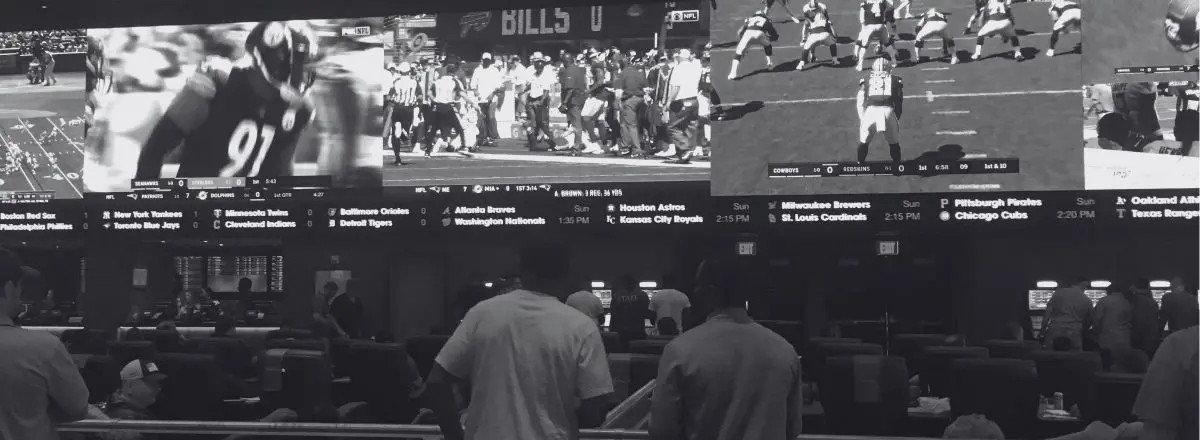Experts often predict that the launch of Missouri sports betting will generate tens of millions of dollars in additional tax revenue right out of the gate. But there is a good chance they are wrong.
In fact, they almost assuredly will be incorrect. And their margin for error stands to be huge.
What’s more, this chasm between expectations and reality is by design. The Show Me State is making that much clear with its approach to taxing online sporsbooks promotions and bonuses. And if the current intentions hold, it could submarine revenue potential for the first year of Missouri’s wagering operations.
Missouri Sports Betting Tax Writeoffs Will Be Implemented
Details continue to trickle out about the December 2025 launch of sports betting in Missouri, and one of the latest updates confirms that online operators will be allowed to write off losses. This is a particularly huge deal for the year. That is when online sportsbooks in the United States run their most aggressive welcome bonuses and promotions. After all, they are not just competing for clients in a brand new market. They are chasing those customers while also battling against other Missouri online sportsbooks for their business.
At any rate, this approach will most likely repress the state’s tax revenue for its first year. As Carl Cachia of Cleveland.com writes:
“The interesting part of this measure, and one that caused a huge debate, is the revenue generation estimates. The government estimates tax revenue between $0-28.9 million annually. If that seems strange, it is. Here’s how the ballot explains it: Because the proposal allows for deductions against sports gaming revenues, they estimate unknown tax revenue ranging from $0 to $28.9 million annually. What that means is sportsbooks like BetMGM, DraftKings and FanDuel are able to write off losses taken on promotional spending, i.e. the ‘Bet $5, Get $200 in bonus bets’ offers that are aimed at generating new customers.”
This reported revenue range of $0 to $28.9 million looks quite hilarious. Surely the Missouri sports betting market won’t yield $0 in total profit. At the same time, it theoretically can. Even now, we see operators of online sports betting in the United States report monthly losses in established markets. Add in more aggressive promotional spending for the first year, and there will likely be operators who report total losses.
Will Lower Than Expected Profits in Missouri be Cause for Concern?
While this approach to promotional write-offs is hotly debated, it is far from unique. Other states with sports betting have followed the same blueprint. And implementing it seldom leaves markets operating in the red.
Take sports betting in Michigan as an example. They have allowed unlimited promotional writeoffs for longer than anyone. That has left the Great Lake State with the lowest effective sports betting tax rate in the entire countr. Though this no doubt has cost them money, it does not prevent them from turning a profit.
Michigan sports betting revenue is on track to hit a record $29.1 million in 2025. And if you go back to earlier years of operations, when promotions were more aggressive and it was easier for sportsbooks to rope in new clients, they still cleared around $10 million in annual revenue.
So no, the Missouri sports betting tax writeoffs will not torpedo the state’s newest revenue stream. The market may look like it’s whiffing on expectations by the end of the first year, but it’s only temporary.
Or is it?
Missouri Should Make These Tax Breaks Temporary
Opponents of Missouri sports betting remain skeptical of these tax breaks. They argue it does more harm than good, particularly after the state is already raising its problem-gambling profile by legalizing sports wagering at all. As Cachia explains:
“These numbers are highlighted by those who oppose the legalization of Missouri sports betting. Missourians Against the Deceptive Online Gambling Agreement is a group that says the revenue is not what it seems due to the fact that operators can deduct up to 25 percent of the gross costs of promotional credits and free play. The end result, according to those who oppose the measure, would be far less revenue than expected for Missouri’s K-12 schools and higher education institutions.”
This is all true. But it is a designed short-term setback, in theory, that’s attempting to guarantee a more lucrative future revenue stream.
Granted, the calculus changes here if this 25 percent break is for multiple years—or permanent. Other states have run into issues by extending them. After years of allowing promotional tax writeoffs to its operators, the Colorado sports betting market rolled them back to elevate the state’s revenue.
States that have more recently launched sports betting seem to be taking a different approach. Many allow sportsbooks to write off losses through bonuses and promotions for one year. After that, it is tax business as usual.
Missouri will do well to follow the same procedure. And it definitely has the leverage to do so. The Show Me State isn’t quite a premier market, but it has top-10 potential. Where other states need to incentive top online sportsbooks to do business, Missouri is among those that will be sought after by all operators.
Take a look at this list of the top online sportsbooks so you can find one that works for all of your sports betting needs:
-
EXCLUSIVE BONUS
 50% bonus up to $250Play Now
50% bonus up to $250Play NowT&C apply, 18+, Play responsibly
-
EXCLUSIVE BONUS
 125% up to $1,250Play Now
125% up to $1,250Play NowT&C apply, 18+, Play responsibly
-
EXCLUSIVE BONUS
 225% up to $3,625Play Now
225% up to $3,625Play NowT&C apply, 18+, Play responsibly
-
 50% bonus up to $250Play Now
50% bonus up to $250Play NowT&C apply, 18+, Play responsibly
-
 125% up to $2,500Play Now
125% up to $2,500Play NowT&C apply, 18+, Play responsibly












